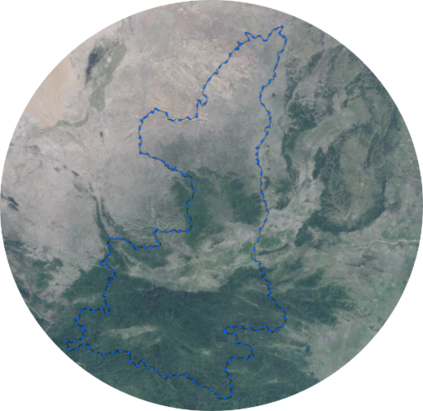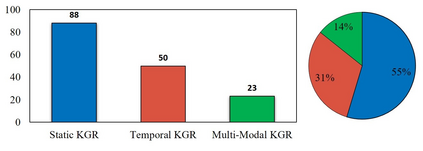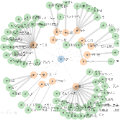Knowledge graph reasoning (KGR), aiming to deduce new facts from existing facts based on mined logic rules underlying knowledge graphs (KGs), has become a fast-growing research direction. It has been proven to significantly benefit the usage of KGs in many AI applications, such as question answering and recommendation systems, etc. According to the graph types, the existing KGR models can be roughly divided into three categories, i.e., static models, temporal models, and multi-modal models. The early works in this domain mainly focus on static KGR and tend to directly apply general knowledge graph embedding models to the reasoning task. However, these models are not suitable for more complex but practical tasks, such as inductive static KGR, temporal KGR, and multi-modal KGR. To this end, multiple works have been developed recently, but no survey papers and open-source repositories comprehensively summarize and discuss models in this important direction. To fill the gap, we conduct a survey for knowledge graph reasoning tracing from static to temporal and then to multi-modal KGs. Concretely, the preliminaries, summaries of KGR models, and typical datasets are introduced and discussed consequently. Moreover, we discuss the challenges and potential opportunities. The corresponding open-source repository is shared on GitHub: https://github.com/LIANGKE23/Awesome-Knowledge-Graph-Reasoning.
翻译:知识图推理(KGR)旨在从基于知识图(KGs)所依据的布雷逻辑规则的现有事实中推导新的事实,已成为一个快速增长的研究方向,已经证明在许多AI应用中,例如问答和建议系统等应用中,对使用KGs大有好处。根据图表类型,现有的KGR模型可以大致分为三类,即静态模型、时间模型和多模式模型。这一领域的早期工作主要侧重于静态的KGR,并往往直接将一般知识图嵌入模型用于推理任务。然而,这些模型不适合更复杂而实际的任务,例如直线式KGR、Text KGR和多模式KGR等。为此,最近开发了多项工作,但没有调查文件和开源储存库全面总结和讨论这一重要方向的模型。为了填补这一空白,我们进行了知识图推理调查,从静态到时间到多模式KGGGs。具体地说,KGRRMR模型的预设、摘要、TGRGRRB/RIFRS(GR) 以及典型的数据存储库。我们随后讨论并分享。














